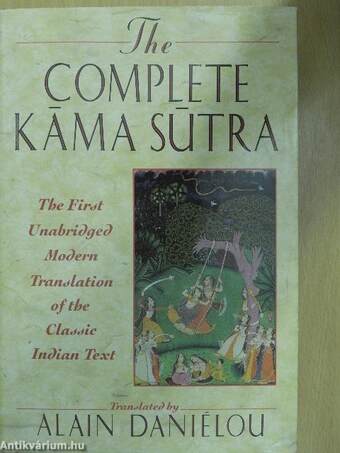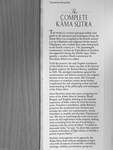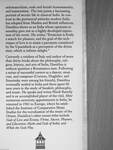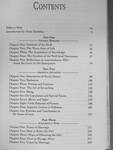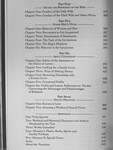1.035.089
kiadvánnyal nyújtjuk Magyarország legnagyobb antikvár könyv-kínálatát

VISSZA
A TETEJÉRE
JAVASLATOKÉszre-
vételek
The Complete Káma Sútra
The First Unabridged Modern Translation of the Classic Indian Text
| Kiadó: | Park Street Press |
|---|---|
| Kiadás helye: | Rochester-Vermont |
| Kiadás éve: | |
| Kötés típusa: | Fűzött kemény papírkötés |
| Oldalszám: | 564 oldal |
| Sorozatcím: | |
| Kötetszám: | |
| Nyelv: | Angol |
| Méret: | 23 cm x 16 cm |
| ISBN: | 0-89281-492-6 |
naponta értesítjük a beérkező friss
kiadványokról
naponta értesítjük a beérkező friss
kiadványokról
Fülszöveg
The WORLD's OLDEST and most widely read guide to the pleasures and techniques of sex, the Kama Sutra was compiled in the fourth century A.D. by a Brahmin and religious scholar named Vátsyáyana, who worked from texts dating back to the fourth century B.C. The Jayamangala commentary, written by Yashodhara in Sanskrit, was appended during the Middle Ages. Subse-quendy, a modern Hindi commentary by Devadatta Shástri was added.
Until the present, the only English translation of this Hindu love classic was that of the famous English explorer Sir Richárd Burton, published in 1883. His abridged translation ignored the commentaries and failed to preserve the originál division of the text into verses. His Victorian reluctance to translate certain terms further complicated the task of gaining a clear and fali understanding of the philosophy and techniques of the Káma Sütra.
AJain Daniélou spent four years comparing ver-sions of the Kama Sütra in Sanskrit, Hindi, Bengáli, and English,... Tovább
Fülszöveg
The WORLD's OLDEST and most widely read guide to the pleasures and techniques of sex, the Kama Sutra was compiled in the fourth century A.D. by a Brahmin and religious scholar named Vátsyáyana, who worked from texts dating back to the fourth century B.C. The Jayamangala commentary, written by Yashodhara in Sanskrit, was appended during the Middle Ages. Subse-quendy, a modern Hindi commentary by Devadatta Shástri was added.
Until the present, the only English translation of this Hindu love classic was that of the famous English explorer Sir Richárd Burton, published in 1883. His abridged translation ignored the commentaries and failed to preserve the originál division of the text into verses. His Victorian reluctance to translate certain terms further complicated the task of gaining a clear and fali understanding of the philosophy and techniques of the Káma Sütra.
AJain Daniélou spent four years comparing ver-sions of the Kama Sütra in Sanskrit, Hindi, Bengáli, and English, drawing on his intimate experience of India, where he lived for twenty years. Daniélou's translation, unlike Burton's, preserves the numbered verse divisions and includes the other two commentaries, clearly idendfied, to amplify and elucidate Vatsyáyana's text. His aim in translating the work was to preserve the full explicitness of the originál, dealing with everything from the art of scratching to relations with the wives of others. "I wanted to demystify India," he says, "to show that a period of great civilization, of high culture, is forcibly a period of great liberty."
Realistic and pragmatic in its approach, the Kama Sütra deals without ambiguity or hypo-crisy with all aspects of sexual life—including marriage, adultery, prostitution, group sex,
sadomasochism, male and female homosexuality, and transvestism. The text paints a fascinating portrait of secular life in classical India. In con-trast to the puritanical attitudes modern India has adopted from Muslim and British influences, Daniélou shows us an India whose openness to sexuality gave rise to a highly developed expres-sion of the erotic. He writes: "Eroticism is firstly a search for pleasure, and the goal of the tech-niques of love is to attain a paroxysm considered by the Upanishads as a perception of the divine state, which is infinite delight."
Currendy a resident of Italy and author of more than thirty books about the philosophy, reli-gion, history, and arts of India, Daniélou is without question a Renaissance man. Following a series of successful careers as a dancer, musi-cian, and composer (Cocteau, Diaghilev, and Stravinsky were among his friends), Daniélou eventually setded in India and there spent fif-teen years in the study of Sanskrit, philosophy, and music. He speaks and writes Hindi fluently and is an accomplished player of the vína. After numerous university appointments in India, he returned in 1963 to Europe, where he estab-lished the Institute of Comparative Music Studies for the reevaluation of the music of the Orient. Daniélou's other recent titles include Gods of Love and Ecstasy; Virtue, Success, Pleasure, and Liberation; Myths and Gods of India; and While the Gods Play.
Vissza
Témakörök
- Idegennyelv > Idegennyelvű könyvek > Angol > Művelődéstörténet
- Művelődéstörténet > Kultúra > Története
- Idegennyelv > Idegennyelvű könyvek > Angol > Szex, szerelem
- Szex, szerelem > Kultúrtörténet > Keleti kultúrkör
- Szex, szerelem > Idegennyelvű
- Szex, szerelem > Szexuális felvilágosítás > Egyéb
- Erotika > Egyéb
- Erotika > Kultúrtörténet > Keleti kultúrkör
- Idegennyelv > Idegennyelvű könyvek > Angol
- Idegennyelv > Idegennyelvű könyvek > Angol
Megvásárolható példányok
Nincs megvásárolható példány
A könyv összes megrendelhető példánya elfogyott. Ha kívánja, előjegyezheti a könyvet, és amint a könyv egy újabb példánya elérhető lesz, értesítjük.



